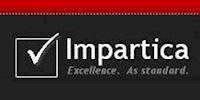
Online Introduction to SQL course
Live webinar introducing relational databases (RDBMSs) and SQL (Structured Query Language)
Summary
The invoice is payable within 30 days and payment can be made by bank transfer (BACS etc), cheque...
- Tutor is available to students
Add to basket or enquire
Overview
This course will introduce you to relational databases (RDBMSs), and SQL (Structured Query Language) - the language used to create, modify, manage and query them. Using real world examples you will create tables, set permissions, insert, update and delete data, and retrieve your data using standard SQL. You will also learn about the most common features of the proprietary extensions to the standard language supported by the two most common databases - Microsoft SQL Server and Oracle.
Description
Detailed course contents
Introduction
- Databases and SQL
- Types of databases
- Common applications of databases
- Popular Databases
- What is SQL?
- Subsets of SQL
Tables
- What is a table?
- Creating a table
- Column definitions
- Common SQL data types
- Putting it all together
- Note on syntax
- Table and column name rules
- More DDL
Adding records to a table
- The INSERT Statement
- Inserting into DATE columns
- Inserting the current date
Primary keys and foreign keys
- Primary keys
- Choosing a primary key
- Declaring a primary key
- Surrogate primary keys
- Support for surrogate primary keys – SQL Server
- More on SQL Server Identity columns
- Support for surrogate primary keys - Oracle
- More on Oracle sequences
- Foreign Keys
- Declaring a foreign key
- Handling deletions
Other types of constraint
- Adding constraints to a column
- Making table columns mandatory
- The NOT NULL constraint
- CHECK constraints
- Declaring a check constraint at column level
- Declaring a check constraint at table level
- Creating constraints independently
- Removing constraints
Selecting data from a table
- The SELECT statement
- The WHERE clause
- Conditional selections
- More conditional selections
- The LIKE condition
- The IN condition
- The BETWEEN condition
- Case sensitivity
- Combining conditions with AND and OR
- Precedence of AND and OR
- Negating a predicate with NOT
- SELECT INTO
- Creating a table from a query result
- Sorting results with ORDER BY
- More on the ORDER BY clause
- Shortcuts with the ORDER BY clause
Selecting from multiple tables
- Table Joins
- Inner Joins
- Outer Joins
- Non standard table join syntax
- Non-equijoins
- Table aliases
- Column aliases
- Linking multiple tables
- Self joins
Doing more in the SELECT statement
- The DISTINCT keyword
- Mathematical operators
- Mathematical operators can work on more than one column
- Mathematical functions
- Handling NULL values
- Character functions
- Tip: Overriding case sensitivity in Oracle
- Initialise capitals
- Concatenating character values
- Character functions can be combined
- Date functions
- SQL Server date functions
- Oracle date functions
- Date arithmetic
- Tip: Use TRUNC when comparing dates in Oracle
- Converting datatypes: Oracle
- Converting datatypes: SQL Server
- Tip: Use CONVERT when comparing dates in SQL Server
- Using functions in the WHERE and ORDER BY clauses
Aggregate Functions
- The GROUP BY clause
- The HAVING clause
- Combining clauses
Subqueries,correlated subqueries, unions and inline views
- Single row subqueries
- Multi row subqueries
- Correlated subqueries
- UNIONs
- UNION ALL
- MINUS and EXCEPT
- Inline views (derived tables)
Updating and deleting
- The UPDATE statement
- The DELETE statement
- The TRUNCATE statement
- Views
- Creating a view
- Manipulating a view
Data access
- Controlling access with DCL
- Users
- Roles
- The GRANT command
- The REVOKE command
- Accessing another user’s objects
- Easier access with SYNONYM s
Transaction Control
- Transactions
- COMMIT ting changes
- Rolling back changes
Who is this course for?
This course is for anyone who wants to learn SQL from the comfort of their own home or workplace.
Requirements
Good wifi connection.
There are no prerequsites for this course.
Career path
These skills could be useful for anyone in a role that requires knowledge of SQL.
Questions and answers
Reviews
Currently there are no reviews for this course. Be the first to leave a review.
Provider
Online and one on one courses at a date that suits you. Whichever course you are looking for, if we teach it, you are unlikely to have to wait more than a few weeks to get it delivered to you, live, one on one through our remote software.With the increasing popularity of IT systems such as SQL Server and Oracle growing in companies, we aim to deliver to courses wherever the location. Our most popular courses include Introduction to SQL, Programming with CSharp, Transact SQL and Developing Web Applications with ASP NET Our instructors have extensive knowledge of each course subject and pride themselves on delivering an outstanding service.
Legal information
This course is advertised on Reed.co.uk by the Course Provider, whose terms and conditions apply. Purchases are made directly from the Course Provider, and as such, content and materials are supplied by the Course Provider directly. Reed is acting as agent and not reseller in relation to this course. Reed's only responsibility is to facilitate your payment for the course. It is your responsibility to review and agree to the Course Provider's terms and conditions and satisfy yourself as to the suitability of the course you intend to purchase. Reed will not have any responsibility for the content of the course and/or associated materials.
